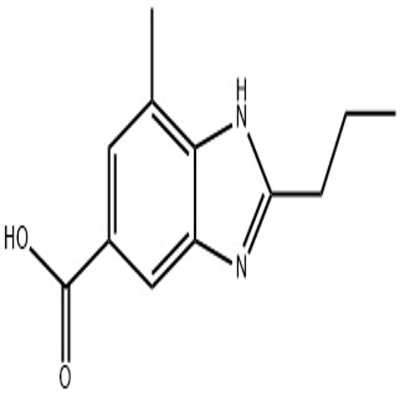-
Categories
-
Pharmaceutical Intermediates
-
Active Pharmaceutical Ingredients
-
Food Additives
- Industrial Coatings
- Agrochemicals
- Dyes and Pigments
- Surfactant
- Flavors and Fragrances
- Chemical Reagents
- Catalyst and Auxiliary
- Natural Products
- Inorganic Chemistry
-
Organic Chemistry
-
Biochemical Engineering
- Analytical Chemistry
-
Cosmetic Ingredient
- Water Treatment Chemical
-
Pharmaceutical Intermediates
Promotion
ECHEMI Mall
Wholesale
Weekly Price
Exhibition
News
-
Trade Service
6-Chloro-5-methylpyridazin-3-amine, also known as MCPA, is a chemical compound that is commonly used in the chemical industry.
It is widely used as a pharmaceutical intermediate, a reagent for organic synthesis, and as a herbicide.
Despite its widespread use, there are concerns about the safety of MCPA, particularly in regards to its potential toxicity and carcinogenicity.
One of the main concerns with the use of MCPA is its potential toxicity.
MCPA is classified as a category 3 carcinogen by the International Agency for Research on Cancer (IARC), which means that it is not classified as a probable human carcinogen.
However, studies have shown that MCPA is capable of causing cancer in animals, and there is limited evidence suggesting that it may also be capable of causing cancer in humans.
Another concern with the use of MCPA is its potential toxicity to the environment.
MCPA is highly soluble in water, and it has been found in groundwater and surface water sources at concentrations that exceed the maximum allowable limit for drinking water.
This has raised concerns about the potential for MCPA to contaminate drinking water supplies and the potential toxicity of MCPA to aquatic organisms.
Despite these concerns, MCPA is still widely used in the chemical industry.
One of the main reasons for this is the availability and low cost of MCPA.
It is also highly reactive and can be easily converted into a variety of other compounds, which makes it useful as a building block for the synthesis of other chemicals.
However, there are steps that can be taken to reduce the potential risks associated with the use of MCPA.
One of the most important measures is the proper handling and disposal of MCPA.
This includes ensuring that it is stored and transported in accordance with all relevant regulations, and disposing of any excess or unwanted MCPA in a safe and responsible manner.
Another important measure is the implementation of proper safety protocols in industrial facilities where MCPA is used.
This includes providing appropriate personal protective equipment (PPE) to workers, such as gloves and respirators, to prevent skin and inhalation exposure to MCPA.
It also includes regular monitoring of air quality and employee health to ensure that exposure levels are within acceptable limits.
Finally, there is ongoing research into the potential health and environmental risks associated with the use of MCPA.
This includes studies on the potential carcinogenicity of MCPA, as well as its potential toxicity to aquatic organisms and the environment.
This research is important for understanding the potential risks associated with the use of MCPA and for developing strategies to minimize those risks.
In conclusion, 6-Chloro-5-methylpyridazin-3-amine, also known as MCPA, is a widely used chemical compound in the chemical industry.
Despite its widespread use, there are concerns about the safety of MCPA, particularly in regards to its potential toxicity and carcinogenicity.
To minimize the potential risks associated with the use of MCPA, it is important to properly handle and dispose of the chemical, implement proper safety protocols in industrial facilities where MCPA is used, and continue research into the potential health and environmental risks associated with its use.
It's important to note that the safety of a chemical compound like MCPA can change over time and depend on factors such as the concentration, the duration of exposure, and the route of exposure.
Therefore, it's important to consult the most recent and reliable safety data sheets and regulations provided by the manufacturer or the relevant authorities.





![benzyl N-{2-[4-(4,4,5,5-tetramethyl-1,3,2-dioxaborolan-2-yl)phenyl]ethyl}carbamate](https://file.echemi.com/fileManage/upload/goodpicture/20210823/m20210823171124543.jpg)

